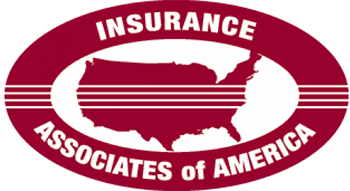Launching your independent insurance agency is more than a career move—it’s your ticket to financial freedom, personal fulfillment, and professional independence. Embarking on this journey can feel daunting and filled with uncertainty, however, this roadmap will equip you with invaluable strategies and empowering insights. Discover how to confidently navigate industry challenges, ignite growth from day one, and build an agency you can take pride in.
What Makes Independent Agencies Unique?
Freedom and Flexibility
Unlike captive agents, who are tied to one carrier, independent agents can offer policies from multiple carriers; therefore, you can better serve your clients by tailoring coverage to their needs. This freedom doesn’t just benefit your customers—it also allows you to diversify your revenue streams and protect your business from fluctuations in any one carrier’s performance.
Owning Your Book of Business
When you own an independent agency, your book of business belongs to you, not the carrier. This means that if you ever decide to sell your agency or retire, you have a valuable asset to leverage. Additionally, owning your book also gives you more control over how you grow and manage your business.

Preparing to Launch
First: Evaluate Your Experience
Before you dive in, please take a hard look at your skills and resources. Do you have experience in sales, customer service, or insurance underwriting? If not, consider taking some courses or working with a mentor. Starting without a solid foundation can lead to costly mistakes.
Many independent agents leave their captive residency to go independent. They spend time learning coverage language, studying the carrier-client relationship, and the responsibility of an professional insurance advisor. Selling insurance and owning an agency are not the same, so it’s best to familiarize yourself with the industry and learn if it’s the right fit for you before investing more into your business.
Second: Write a Business Plan
Your business plan is your roadmap. Include your mission, target market, revenue goals, and marketing strategies. For example, are you focusing on personal lines, commercial lines, or a mix? Are you targeting high-net-worth individuals or small businesses? A clear plan will help you stay focused. Don’t underestimate the importance of financial projections. Knowing how much you need to invest upfront—and when you can expect to break even—will save you a lot of stress.

Finally: Licensing and Compliance
Each state has different licensing requirements for independent agents. Research what your state requires and ensure you have all the necessary certifications. Most states also require continuing education, so make a plan to stay compliant.
Building Your Agency
First: Choose Your Office Setup
Will you work from home, rent an office, or go fully virtual? Each option has its pros and cons. A physical office can establish credibility, but a virtual setup reduces overhead. Some insurance companies may require an agency to have a commercial location to receive a contract.
Second: Secure Carrier Appointments
Carrier appointments are the backbone of your agency. You can join a cluster, or network of independent agencies that offer contracts with carriers. Or, start by approaching carriers that align with your niche. Be prepared to provide a business plan and shows you have the potential to bring in clients. Try to build relationships with regional carriers. They often have fewer restrictions than national carriers and may offer more competitive commission structures.
Finally: Set Up Your Technology
Invest in a good customer relationship management (CRM) system and rating tools. These will help you track leads, manage client data, and quote policies efficiently. Many independent agents swear by platforms like EZLynx or HawkSoft. Some of them come with or offer a comparative rater, which allows an agency to quote with many different carriers at once, saving time and money.

Marketing Your Agency
First: Build an Online Presence
Your website is your digital storefront. Make sure it’s professional, mobile-friendly, and includes clear calls to action like “Request a Quote” or “Contact Us.” Don’t forget to optimize for local SEO so potential clients can find you.
Second: Leverage Social Media
Social media isn’t just for cat videos—it’s a powerful marketing tool. Platforms like LinkedIn, Facebook, and Instagram allow you to connect with clients and showcase your expertise. Share empowering tips, client success stories, and even behind-the-scenes content. Don’t underestimate the power of authenticity!
Finally: Traditional Marketing Still Works
Attend local networking events, sponsor community activities, and partner with other small businesses. Referrals from happy clients are gold, so consider creating a referral program. Joining your local chamber of commerce is a great way to make introductions. A quick online search would produce a couple of networking/small business groups to inquire with.

Growing Your Agency
Hiring Your First Employee
When business picks up, you’ll need help. Start with an administrative assistant or a producer who can bring in new business. Hiring the right people will free up your time to focus on growth. Hiring a producer in the early stages can promote faster growth, while hiring an administrative assistant can free up the agent’s time to work on bringing in more business.
Expanding Your Carrier Portfolio
As your agency grows, you’ll want to offer more options to your clients. Look for carriers that fill gaps in your current offerings. Just make sure you don’t overextend yourself—quality over quantity is key. Starting with a handful of trusted carrier partners grants more opportunities to learn the specific appetites and benefits of one carrier from the other, which in turn allows you to serve your clients better.
Overcoming Challenges
Navigating Market Fluctuations
The insurance market is cyclical, and rates can change quickly. Stay proactive by diversifying your offerings and maintaining strong relationships with carriers.
Balancing Work and Life
Running an independent agency can be demanding, especially in the early days. Set boundaries to avoid burnout. Remember, a well-rested agent is a better agent.
Handling Difficult Claims
Clients will turn to you in times of crisis. Handling claims with empathy and efficiency will strengthen your reputation and client relationships.
Conclusion
Starting an independent insurance agency is a challenging but rewarding journey. With the right preparation, tools, and mindset, you can build a business that not only serves your clients but also gives you the freedom and financial stability you’ve been seeking.
If you’re ready to take the leap, contact us today!





















